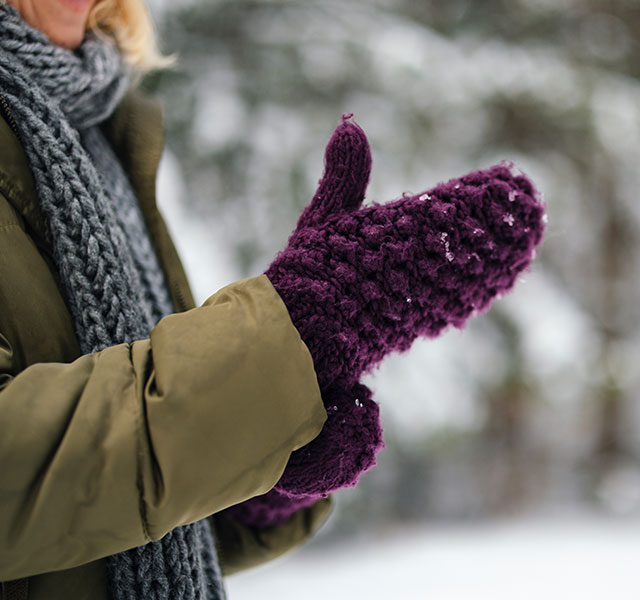If you’re dealing with a neurological condition, the start of winter is probably not a welcome arrival. Cold temperatures can make the symptoms of conditions like Parkinson’s disease, multiple sclerosis and myotonia worse. It can also increase your risk of falls.
“Many of the body’s functions rely on our muscles, nerves and blood vessels working properly,” says Shana Krstevska, M.D., a neurologist at Henry Ford Health. “But cold weather can make blood vessels constrict and worsen muscle spasticity.”
When hit with cold temperatures, your body may not be able to work as well as it should. It’s important to take precautions to prevent getting too cold. But with some careful planning, you can stay safer all winter long.
The Connection Between Cold And Neurological Symptoms
When the body gets cold, it automatically ramps up certain functions in an attempt to help regulate its internal temperature. “Thermoregulation is a vital function of the autonomic nervous system,” says Dr. Krstevska. “In response to heat or cold, your body works to keep your internal temperature in the normal range between 97 and 99 degrees.”
One of the ways your body works to stay warm in super cold temperatures is by contracting muscles. Contractions so small you don’t notice them (except perhaps as an involuntary shiver) help your body generate much-needed heat.
But when you have a condition that affects your muscle contractions, that natural process can spell trouble. “When you have muscle spasticity, such as with multiple sclerosis or cerebral palsy, the muscle can’t contract properly to increase body heat,” says Dr. Krstevska.
The cold can also worsen muscle spasticity. “Once a muscle contracts, you may not be able to relax it,” she says. That can create dangerous stiffness or affect balance and increase risk of falling.
In cold temperatures, your blood vessels naturally contract (a process called vasoconstriction). This impacts how cold affects neuropathy. Vasoconstriction can lead to not enough blood getting to your nerves, which increases pain and numbness.
Because people with neurological conditions have a harder time thermoregulating, they are at higher risk for hypothermia—when your core body temperature falls below 95 degrees. Such a low temperature is dangerous on its own and can also cause cardiac arrhythmias (irregular heartbeat).

Neurology At Henry Ford
Plan Ahead To Stay Out Of The Cold
Managing your condition during the cold winter months requires some planning and preparation. “If you must go out, do it during daylight hours to get the warmest temperatures of the day,” says Dr. Krstevska. “And only go out if temperatures are above freezing.”
Luckily, these days it’s easier than ever to get almost everything you need delivered directly to your door. You can also have doctor’s appointments, meetings and even social gatherings via video conferencing. Dr. Krstevska also suggests getting a letter from your doctor to the post office asking to get your mail delivered to your door—instead of having to walk to the mailbox. “For some people, just walking to the end of the driveway and back in the cold can be a safety issue,” she says.
Tips For Staying Warm
If you need to go outdoors, dress appropriately to help keep your body’s core temperature as warm as possible. That means wearing lots of layers in fabrics like wool or silk that help trap body heat.
Even indoors, winter temperatures can get cold enough to worsen symptoms. Dr. Krstevska recommends keeping your home heated to at least 68 degrees. If you have to go outdoors, focus on warming up as soon as you come inside. Drinking some warm liquids and sitting under a heated blanket can help to quickly bring your body temperature back up.
It’s important to realize that cold temperatures don’t actually worsen your disease. But as the disease progresses, you may become increasingly sensitive to cold. Taking precautions during cold weather will help you feel better and stay safer.
Reviewed by Dr. Shana Krstevska, a neurologist who sees patients at Henry Ford West Bloomfield Hospital and Henry Ford Medical Center - Royal Oak.



